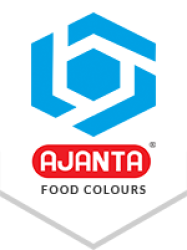India, officially known as the Republic of India is a vast country in the Asian continent renowned for its rich history, diverse culture, varied religions, natural beauty, cuisine, and growing economy. India shares land borders with Pakistan to the northwest, China and Nepal to the north, Bhutan to the northeast, and Bangladesh and Myanmar to the east. It also has maritime borders with Sri Lanka and the Maldives. In the Indian economy, the manufacturing sectors play an important role that have various small and large manufacturing industries including food and beverages, cosmetics, pharmaceuticals, and more.
The Indian government has introduced many key initiatives in recent years to support small businesses in the country such as Make in India, Skill India Mission, Start-up India and Stand Up India, etc. These campaigns helped many small and medium-scale businesses to grow and they also have reduced imports from other countries. Additionally, the government has implemented various incentives and support schemes to attract foreign investors, encouraging them to locate their manufacturing plants in India. This strategy has successfully increased foreign direct investment (FDI) and further boosted the country’s economic growth.
In the manufacturing of any product, various small and large components play an important role. Some help in the product’s manufacturing while others help in its appearance and attractiveness which is important for product sale and brand recognition, one of them is colour. It provides a final appealing look to products that catch the attention of consumers and increase product sales. In India, almost every manufacturing business uses colours in their products to make them appealing and stand out in the competitive market.
Indian Industries Where Colours Play a Vital Role
In India, colours play an important role in evoking emotions, attracting consumers, creating product identity, and more. Let’s explore some Indian businesses where colours play an important role.
Food and Beverage Industry
Colours play an important role in the food and beverage industry of India. Colours provide a vibrant and appealing look to various food and beverage products including confectioneries, baked goods, processed food, and many types of drinks. These appealing products catch the attention of consumers and increase sales. Still, Indian food and beverage manufacturers often face some challenges in selecting the right colour for their products. Manufacturers want high-quality vibrant and stable colours that come in a variety of colour shades. Synthetic food colours can overcome these challenges for Indian food and beverage manufacturers. Synthetic food colours come in different vibrant colour shades that provide an appealing look to the products attracting consumers and aiding in brand recognition and product sales. Most of India's food and beverage manufacturing industries are located in the Maharashtra, Gujarat, Uttar Pradesh, and Tamil Nadu regions. According to Statista, the revenue of the food market in India amounts to US$962.30 billion in 2025, and it is expected that it will grow annually by 6.77% (CAGR 2025-2030).
Cosmetics Industry
In the Indian cosmetics industry, colours are a vital component of products. They give an appealing and fun look to various makeup and personal care products such as lipsticks, foundations, mascaras, eyelashes, blushers, nail polish, moisturizers, soaps, and more. However, cosmetic manufacturers often face some challenges in selecting the right colour for their products. Manufacturers want premium colours that provide a vibrant and bright look to their products and do not fade over time. Indian cosmetic manufacturers can overcome their problems by using synthetic cosmetic colours in their products. These high-quality pigments come in different vibrant shades that allow manufacturers to create unique coloured products and stand out in the competitive market. Synthetic cosmetic colours are stable, meaning they do not fade or change colour over time, making the product attractive and appealing for a long time. Most of the cosmetics manufacturing industries of India are located in Maharastra, Delhi, Gujarat, and Uttar Pradesh. According to Statista, the revenue of the beauty and personal care market of India is projected to reach US$33.08 billion in 2025, and it is expected to show an annual growth rate of 3.48% (CAGR 2025-2030).
Pharmaceuticals Industry
Colours play an important role in the pharmaceutical industry of India. Manufacturers use colours in their medicines such as capsules, tablets, gels, mouthwash, and supplements, to make them differentiable whether different medicines or the same medicine with different strengths. This reduces the chance of taking the wrong medication. Colours also help in medicine recognition for consumers and win their trust. Still, manufacturers face some challenges in selecting the right colour for their products. Manufacturers want stable and vibrant colours that fulfill regulatory standards set by the Food Safety and Standards Authority of India (FSSAI). Pharmaceutical manufacturers in India overcome these challenges by using synthetic pharmaceutical colours in their products. These food-grade colours provide the best stability to pharma products and do not fade or change colour during the manufacturing and storage processes. Synthetic food-grade colours also meet all the regulatory standards set by the Indian government body FSSAI. Most of the pharmaceutical manufacturing industries of India are located near Hyderabad, Mumbai, Bangalore, Ahmedabad, and Pune. According to Statista, the revenue of the pharmaceuticals market of India is projected to reach US$13.48 billion in 2025, and it is expected to exhibit an annual growth rate (CAGR 2025-2029) of 4.70% by 2029, resulting in a market volume of US$16.56 billion.
Chocolate Industry
In the Indian chocolate manufacturing industry colours play a crucial role. Colours make chocolate more appealing and attractive to consumers, especially women and children, encouraging them to buy it. Colours allow manufacturers to create unique products that seem different from their competitors, it helps in product recognition and sales. Even so, chocolate manufacturers in India face challenges in selecting the right colour for their products. They want premium colours that do not fade or change over time and come in different colour shades. Indian chocolate manufacturers can overcome their challenges by using synthetic food colours in their products. These high-quality colours come in different vibrant shades that provide an appealing and fun look to chocolates that helps attract consumers and boost product sales. Synthetic food colours provide good stability to products during and after the manufacturing process which is important for the chocolates' appearance and customer satisfaction. Most of the chocolate manufacturing industries of India are located near Maharashtra, Karnataka, Andhra Pradesh, Kerala, Gujarat, and Tamil Nadu cities. According to Statista, The revenue of the chocolate confectionery market of India is expected to reach US$ 1.64 billion in the year 2025, with an annual growth rate of 6.05% (CAGR 2025-2030).
Animal Feed Industry
Colours play an important role in the Animal feed industry in India. They help in the differentiation of various feeds like poultry, swine, cattle, etc., making the feed attractive for animals that encourage them to eat properly and stay healthy. However, pet food manufacturers often face some challenges in selecting the right colour for their products. Manufacturers seek high-quality colours that provide an appealing and attractive look to their feed products and do not fade or change their colour during the manufacturing and storage of products. Indian animal feed manufacturers overcome their problems by using synthetic animal food colours in their products. Animal synthetic food colours come in different vibrant colour shades that do not fade or change over time. These colours allow manufacturers to make animal feed different from their competitors, help in product recognition, and increase sales. In India, many colour merchants, distributors, and suppliers purchase high-quality colours from big colour manufacturers like Ajanta Food Colours, a global leader in the synthetic food colours manufacturing industries, and sell them to various businesses that require colour in India, making a profit on each sale. Some suppliers, distributors, and merchants sell the colours under the same brand name from which they purchase, while others create their own labels and sell under their brand names. Most of the animal feed manufacturing industries of India are located in Punjab, Haryana, Uttar Pradesh, Maharashtra, Gujarat, Karnataka, Tamil Nadu, Andhra Pradesh, Telangana, and Kerala states. According to Statista, the revenue of the Indian Pet Food market amounts to US$464.70 million in 2025, and the market is expected to grow annually by 11.06% (CAGR 2025-2029), reaching US$707.10 million by 2029.
Cultural Preferences of Colours in India
Indian people are influenced by colours according to their cultural, religious, and historical factors. Different colours have different meanings for each person. For example, the people of India see red as the colour of happiness, joy, and celebration which is worn by women of India at their weddings. On the other hand, the blue colour is the symbol of strength and is also known as the colour of Krishna who is a famous Hindu god. Manufacturers of India closely observe these consumer preferences of Indian people and use colours in their products accordingly. Indian manufacturers use red and yellow in their food products to attract customers, as these colours are associated with freshness and quality. They mostly use blue and brown in their chocolate products, as these colours signify richness and help boost sales in the Indian market.
Regulatory Guidelines on Colours in the Indian Market
In India, the use of colours in products like food, cosmetics, pharmaceuticals, and animal feed is overseen by the Food Safety and Standards Authority of India (FSSAI). FSSAI is an Indian governmental body responsible for ensuring the quality and safety of colours for human consumption. This organization makes rules and guidelines on the use of colours in products, and manufacturers must follow them. By adhering to all FSSAI guidelines, manufacturers can avoid legal consequences and gain consumer trust.
In India many startups are opened every year but not all are successful and survive in the long run because they have to face lots of challenges. Startups face competition with the brands their products are already in the market and people know them, along with pricing issues, consumer trust in new products, and more. Indian startups can overcome various challenges by using synthetic food colours in their products. Synthetic food colours provide a vibrant and appealing look to the products that attract consumers and ultimately, boost product sales and brand recognition. Synthetic food colours are a more affordable option compared to other colourant alternatives that allow manufacturers to sell their products at competitive pricing in the market.
If you are a business owner or startup seeking high-quality synthetic food colours in India for your products to increase sales and establish brand recognition, so you can consider Ajanta Chemical Industries, popularly known as Ajanta Food Colours. The company provides a Supra range of colours for various applications such as food, cosmetics, pharmaceuticals, animal feed, personal and home care products, and more, from 75+ years.
Ajanta Food Colours uses the latest machinery in its manufacturing plants to ensure the quality of its colours. This machinery includes ICP OES to detect heavy metals in raw materials and finished goods, high-performance liquid chromatography for organic impurities, UV spectrometry to analyze pigment content and strength, absorbance curves of colours, thin-layer chromatography, vacuum ovens for LOD tests, humidity detection in products, and colour matching machines, along with other instruments for complete testing of the raw materials and colours. Moreover, Ajanta provides personalized help and support to its clients, enhancing their experience and building loyalty. Ajanta Food Colours is the best option for Indian business owners, startups, and manufacturers seeking high-quality colour solutions for their products.
Ajanta Food Colours has received various awards and certificates from Indian governmental bodies as well as from countries where Ajanta exports its colours. Some awards and certificates of Ajanta Food Colours include The Arch of Europe Award, the Bureau of Indian Standards (BIS) Award, certifications from The Food Safety and Standards Authority of India (FSSAI), the US Food and Drug Administration (US FDA), as well as Halal, Alcumus ISOQAR, Star-K Kosher, Food Safety System 22000 (FSSC 22000), and ISOQAR certifications, among others.
To know more about Ajanta Food Colours and its high-quality colourants, or for any other information please contact us today!





 (2)_1706961165.jpg)